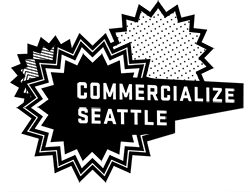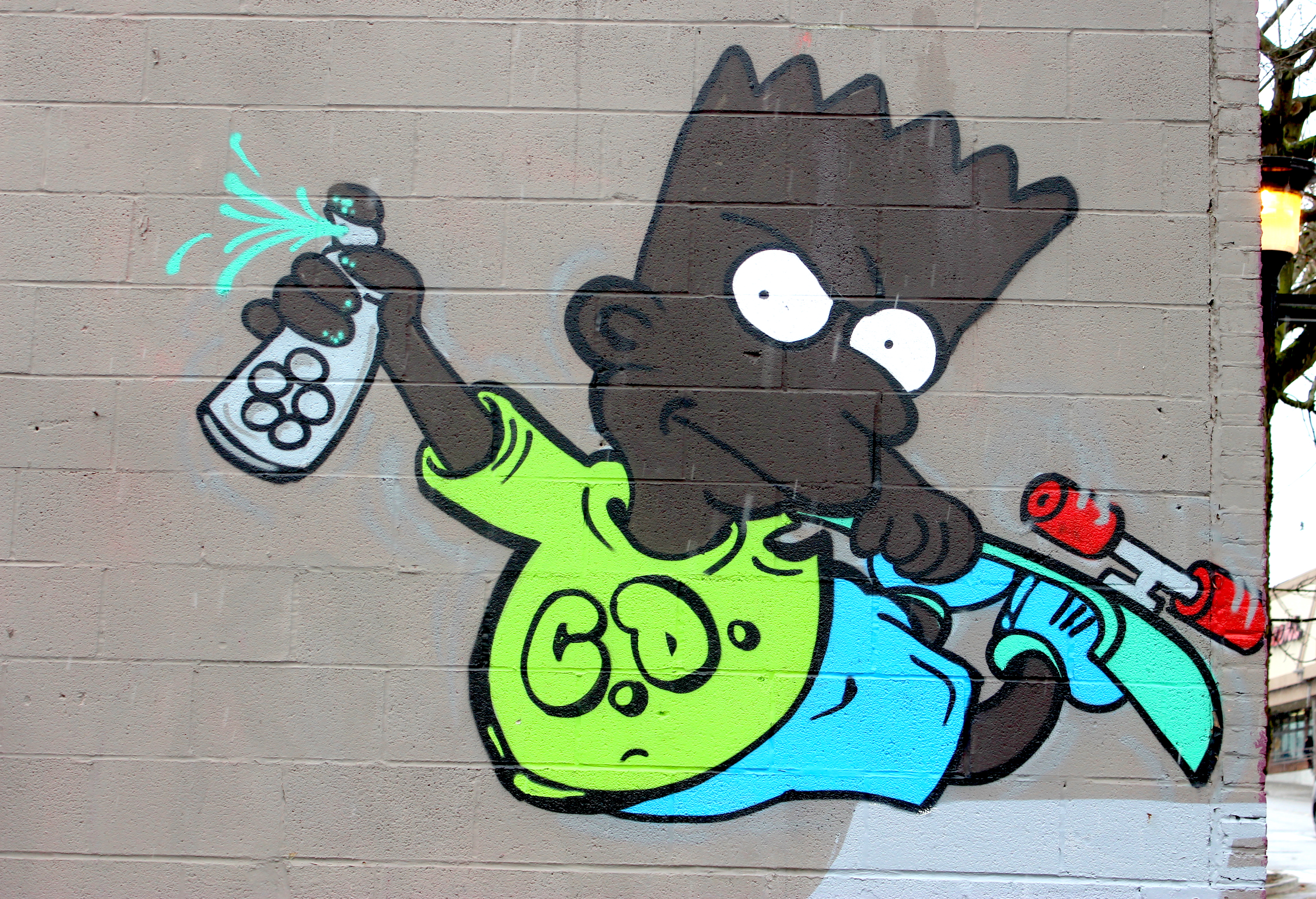Brian Russell, a wedding film producer from Sumner, had never been to one of the monthly Office of Film + Music happy hours. He decided to come to this one for a very particular reason.
“It is the launch of something new that has to do with money,” Russell said. “They are talking about money.”
Indeed, for one of the first times (at least according to many in attendance), the local film community got together to “facilitate the exploitation of the natural resources, independent spirit and creative culture of the city of Seattle for commercial gain.”
The campaign, appropriately enough, is entitled “Commercialize Seattle.”
Led by a coalition formed from the Office of Film, Washington Filmworks, and local ad agencies Creature and World Famous, the “Commercialize Seattle” campaign officially debuted Wednesday night at Spitfire in Belltown. Local actors, directors and producers piled into the insanely packed bar to hear how Commercialize Seattle was planning on turning Northwest film into cold hard cash. The answer, as the title suggested, is a newfound focus on incentivizing commercial film work (or in essence, advertisements) in Washington State.
“Commercial work really is the cornerstone of how you create your careers,” Amy Lillard, executive director of Washington Filmworks, said at the presentation. “It is the work that allows you to really consider personal creative endeavors, whether it’s a feature length film, or a short film.”
For most cities, this might seem like kind of a no-brainer. Of course you sell your work to make money. That’s the definition of the word “commerce.” In Seattle, however, the prevailing attitude of maintaining “artistic purity” breeds a natural resistance to the idea of selling out. In a way, this new campaign is our city talking to itself. It is a reminder to ourselves that it’s OK to sell creative work, and to do so aggressively. The campaign’s angle is turning Seattle’s traditional resistance to the indignity of “selling out” into an ironic branding strategy.
Slogans like “When we sell out, so does your product!” and “Exploit our natural resources for your commercial gain!” are emblazoned across the campaign literature and posters, designed to look like snappy 50s style advertising with POW and BANG style action clouds.
“We’re selling the region, but not to everybody,” James Keblas said, director of the Office of Film. “We’re selling it to creatives. The last thing they need to hear is more corporate bullshit. It sort of echoes the ‘Loser’ campaign Sub Pop ran in the 90s. We’re not better than everyone else, we’re just doing our own thing, and it’s different and unique.”
The idea is that by owning our aggressive attempt to sell the region to ad agencies by using Seattle’s classic wink-wink nudge-nudge style, we will stand out more than—say—Nevada trying to do the same thing by weepily promoting its vast breathtaking vistas.
And then of course, there’s the financial end of things.
When it was announced that hormone-blasted teen vampire flick Twilight was going to be shot up in Vancouver, it stung down here in Washington. The damn film is set in Forks, WA. Commercialize Seattle’s other main component is working on financial incentives to prevent Vancouver from snatching up all the film goodies and establishing us as a premiere film destination too.
Working together with the Mayor (who spoke that night too), Washington Filmworks is offering sales-and-use taxes off rental equipment and purchase of services, vehicles used in production, hotel/motel tax exemption with 30 consecutive day stays, and what amounts to a “four days of shooting for the price of three” deal with extra incentives if you use local production companies (more details here).
“You are all coming out here tonight because you want to take a sector of this city, our film and commerical advertising sector, and you want to sell this place to the rest of the world. You want them to come here and give us business,” Mayor Mike McGinn said. The mayor invoked Macklemore’s recent success, as well as our landmark gay marriage and marijuana legislation as examples of why Seattle is particularly hot right now.
Kudos to Commericalize Seattle for pushing the multitude of pride points we as a city should be owning. The sentiment and chutzpah deserve applause, and god dammit, we should be pushing our indentity out there right now. We’ve earned it, and the film industry deserves to reap the rewards with government supported incentives. It was great to see Mayor McGinn out supporting something like this.
Suggestion though: when some of our city’s most successful film directors are women (Lynn Shelton, Megan Griffiths, Sue Corcoran) the campaign might want to reconsider some of the borderline rapey slogans like “We bend over so your ideas don’t have to” or “Put your ads in any part of us!”
Just sayin’.








